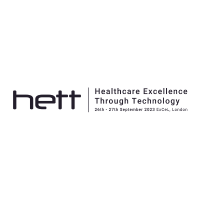Written by: Elina Naydenova, CEO and Cofounder Feebris
Desmond Tutu once said, “There comes a point where we need to stop just pulling people out of the river. We need to go upstream and find out why they're falling in.”
This strongly resonates in today’s environment. Globally, healthcare systems are grappling with a number of growing challenges, ranging from the pressures posed by ageing populations to the stark reality of limited resources, including workforce shortages. As the needs of our society grow and evolve, it is abundantly clear that we need to fundamentally rethink not only the way we deliver healthcare, but also harness the progress in science and technology to cope with emerging challenges and support providers, patients and the wider population accordingly.
The NHS England Delivery Plan for the Recovery for Urgent and Emergency Services illustrates the need for pressing change. We know that many of our healthcare needs can be effectively met outside the boundaries of the traditional hospital setting. The strategy references compelling evidence showing that, with the right care in place, up to 20% of emergency admissions could potentially be avoided. But the successful impact of new initiatives hinges on the need for robust investment in putting the right infrastructural foundations in place to join up care, ultimately helping to create capacity for the system and empowering patients to take control of their health and wellbeing.
Investing in transformation: The right way forward
The latest developments in AI research give us an opportunity to accelerate this shift. At Feebris, we continually develop the capabilities of our platform to create much needed clinical capacity whilst empowering more precise and patient-centred evaluation of health risks. Our AI-guided platform is currently deployed across over 100 sites, working with Integrated Care Systems across the country, spanning care homes, primary care facilities, community nursing and virtual wards. When applied to virtual wards, as we are doing with the Norfolk and Waveney Integrated Care Board, our platform helps equip clinical teams with the information they need to ensure the safe and effective management of patients at home, as an alternative for admission or a route to early discharge. When applied to community care in residential settings such as care homes, as we are doing across North-East London, our platform empowers care teams to proactively identify health issues and escalate actionable insights into the right clinical team. The health economic impact of his approach has been independently evaluated by the York Health Economics Consortium, evidencing savings of £0.5 million per 1,000 patients over a year as a result of accelerated access to treatment and reductions in avoidable hospitalisations.
The mission behind our work is easing pressures on clinicians and carers and providing them with the right actionable insights at the right time, translated from data captured outside the hospital setting. In remote monitoring, the costs associated with noise and error in patient-generated data are substantial, and AI, deployed with the right safeguards in place, offers immense potential to safely and securely filter that
data, freeing up resources for the system and maximising efficiency, as suggested by the 2019 Topol Review on Preparing the healthcare workforce to deliver the digital future. But achieving this vision at scale and embedding it into regular practice will require evolving workflows, building new digital capabilities and, perhaps most importantly, earning trust among clinicians and carers, as well as patients and the wider public. For instance, recent research from the Health Foundation highlighted both the public’s support for the use of virtual wards as well as the importance of raising awareness, understanding and addressing public concerns as we introduce new models of care.
There is a lot to be excited about as we continue to invest in developing, deploying and gathering evidence regarding the potential of advances in science and technology in helping us not just adapt to change, but shape what that looks like. However, it is also clear that the groundwork is not all there yet, and collaboration between providers, patients, the wider public and research and technology organisations will be absolutely crucial in making it work. Join the debate at the HETT show later this month, where I will be talking about all these things and about our approach to developing and introducing AI at scale across the UK to help detect early deterioration, putting the power in the hands of patients and clinical and non-clinical users and driving resource efficiency for the NHS.
The HETT Show will be taking place on 26-27 September at the ExCel in London. Feebris CEO and Cofounder Elina Naydenova will be speaking in the brand new Workforce, Adoption and Productivity theatre. The session, taking place from 11:40 – 12:00, will look at how AI-augmented technology can transform healthcare access. Find out more and register here.
About Elina Naydenova, CEO and Cofounder, Feebris
Elina Naydenova started her career as a biomedical & AI engineer, with a PhD in Machine Learning for Healthcare Innovation from Oxford University.
She has worked on bringing transformational healthcare innovation to health systems, at the World Health Organisation and the Skoll Centre for Social Entrepreneurship.
Elina is currently CEO & Cofounder of Feebris, a deep technology company whose AI-guided platform enables any user to conduct a clinically reliable health assessment at home and identify risk precisely to enable timely intervention. Feebris is currently deployed across 100+ sites in the UK.
%20(1).png?width=500&height=58&name=HETT%20insights%20logo%20RGB-04%20(1)%20(1).png)


